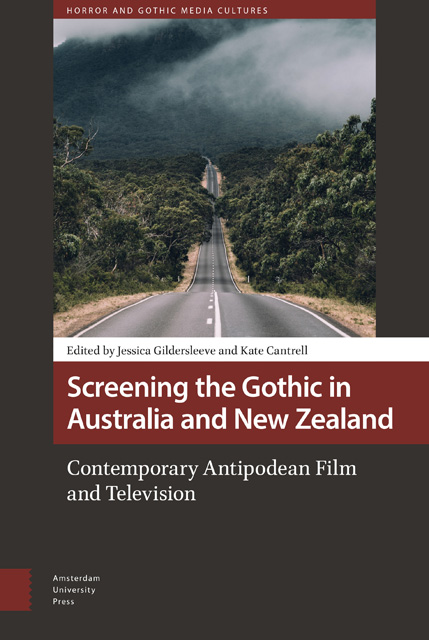11 - Monstrous Victims : Women, Trauma, and Gothic Violence in Jennifer Kent’s The Babadook and The Nightingale
Published online by Cambridge University Press: 24 November 2022
Summary
Abstract
This chapter compares Jennifer Kent's The Babadook (2014) and The Nightingale (2019) in terms of their explicit construction of violence conducted by and against women. Both films draw on the gothic trope of women suffering trauma and the more recent conversion of that suffering to the perpetuation of violent revenge. However, this chapter shows that rather than constituting a kind of bravery, or a subversion of that victimization along the lines of the figure of Carol Clover's ‘Final Girl’, the acts of violence committed by the women in these films compound their traumatization by severing them both from others and from themselves.
Keywords: Australian Gothic cinema; Jennifer Kent; trauma; revenge
Jennifer Kent's The Babadook (2014) has received a great deal of critical attention, primarily for its depiction of monstrous motherhood. This essay seeks to extend that discussion through a comparison to Kent's second film, The Nightingale (2019), and its even more explicit construction of violence conducted by and against women. In this way we show that both films draw on the gothic trope of women suffering trauma and the more recent conversion of that suffering to the perpetuation of violent revenge. However, we argue that rather than constituting bravery, a restoration of justice, or a subversion of that victimization along the lines of the figure of Carol J. Clover's ‘Final Girl’, the acts of violence committed by the women in these films compound their traumatization by severing them from both others and themselves. The adoption of behaviours rendered masculine in the Gothic through the invasion of the home and the colonization of the bush thus confirms these women as monstrous rather than heroic. As in other recent Australian horror films, such as Julia Leigh's Sleeping Beauty (2011) and Sean Byrne's The Loved Ones (2010), women's monstrosity is bound up with their enactment of a masculine agency, such that there is no opportunity for them within the Australian Gothic to move beyond this traditional binary construct.
The Babadook and The Nightingale share many thematic and narrative concerns, but centrally, both depict a young woman struggling to deal with her traumatic loss: each film functions as a commentary on the impacts of gender on the experience of violence and mourning in the aftermath of horror, in the particular context of Australian colonial and contemporary history.
- Type
- Chapter
- Information
- Screening the Gothic in Australia and New ZealandContemporary Antipodean Film and Television, pp. 213 - 228Publisher: Amsterdam University PressPrint publication year: 2022



